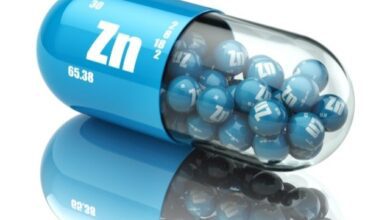Can You Treat Herpes While Pregnant? FAQs about HSV 2 Answered

Across the United States, it is thought that between 50 and 80% of all adults have oral herpes. Most people will suffer from a cold sore on their lips, usually when they are stressed, ill, or start a new medication.
What about genital herpes? Is that as prevalent? Data that the World Health Organization collected in 2020 found that 13% of people aged between 18 and 49 across the globe have genital herpes. So, while it is not as common as oral herpes, it is far from being a rare sexually transmitted disease.
Are you worried that you may have genital herpes? Here is a short FAQ looking at the symptoms, treatment, and differences between the types of herpes you can catch.
What Are the Symptoms of Genital Herpes?
It is an annoying fact, but many people with genital herpes (HSV 2) may experience no symptoms.
If you notice red lumps around your genitalia, rashes, blisters, or sores in your pubic area, along with discomfort when urinating, then you may have herpes. Also, this type of herpes can cause chronic headaches and back pain, so if you notice these symptoms, you should talk to your medical team about being tested for genital herpes. Treatment is widely available, even with online pharmacies like Chemist Click.
I’ve Been Diagnosed with Herpes, But I’m Pregnant; Can I Treat It?
You cannot completely treat herpes; once you have either oral or genital herpes, you have them for life. If you are diagnosed with herpes, and you are pregnant, your doctor will prescribe you antiviral drugs.
If you are experiencing a flare of herpes when pregnant, do not touch the sores, be sure to wash your hands after going to the bathroom, and do not have unprotected sex.
Is There a Difference Between Oral and Genital Herpes?
Yes, there is, but it is quite minor.
Indeed, most doctors will diagnose you with either HSV 1 or HSV 2 solely based on where the sores have appeared, with HSV 1 being oral and HSV 2 being genital. However, because you have a sore on your genitals, this does not automatically mean you have HSV 2; you may have HSV 1 from engaging in oral sex with someone who was having a flare of their oral herpes.
What Does the Treatment Involve?
The treatment for genital herpes looks to shorten the lifespan of the outbreak and usually involves medications like aciclovir. However, this will depend on the severity of the flare and where it is located, so be sure to talk to your doctor if you think you have genital herpes.
Will I Need Treatment Each Time It Flares?
In a word, no. Or, it is extremely unlikely.
You should only aim to take medications like aciclovir during the first flare. After this, you will simply need to avoid having unprotected sex during a flare, as well as keep your hands clean and not touch the sores to prevent the issue from worsening.





